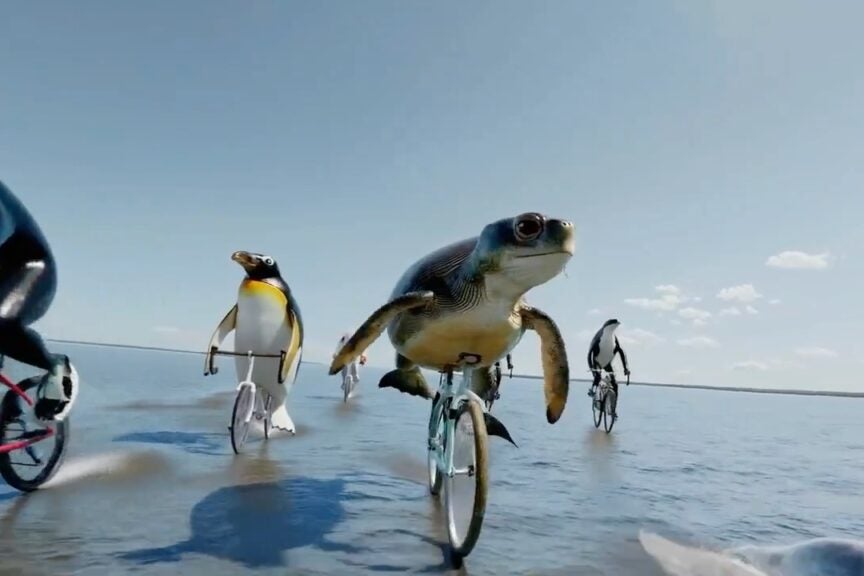Alapfogalmak
OpenAI introduces Sora, a text-to-video model with safety measures and limitations.
Kivonat
OpenAI unveiled Sora, a text-to-video model generating diverse videos from text prompts. Concerns arise over misinformation and job displacement. Safety steps include red team testing and content screening for policy violations. Access to Sora is limited to specific cohorts for feedback on improvements.
Összefoglaló testreszabása
Átírás mesterséges intelligenciával
Hivatkozások generálása
Forrás fordítása
Egy másik nyelvre
Gondolattérkép létrehozása
a forrásanyagból
Forrás megtekintése
www.benzinga.com
How To Try OpenAI's Sora — The New Text-To-Video Model
Statisztikák
OpenAI's text-to-video model can create videos up to one minute long.
Red teamers test the model for safety in areas like misinformation and hateful content.
Specific weaknesses of the current Sora model include challenges in simulating physics accurately and interpreting spatial details within prompts.
Idézetek
"Once in an OpenAI product, our text classifier will check and reject text input prompts that are in violation of our usage policies." - OpenAI representative
"How can I try it?" - Social media user inquiry about accessing OpenAI's Sora model.
"Sora’s current model exhibits certain weaknesses." - OpenAI statement on limitations of the text-to-video model.
Főbb Kivonatok
by Ananya Gairo... : www.benzinga.com 02-26-2024
https://www.benzinga.com/news/24/02/37175800/how-to-try-openais-sora-the-new-text-to-video-model
Mélyebb kérdések
How might the introduction of AI models like Sora impact traditional video production industries?
The introduction of AI models like Sora could potentially disrupt traditional video production industries by automating the process of creating high-quality videos from text prompts. This automation could lead to increased efficiency and cost-effectiveness in video production, as AI can generate videos at a faster pace than human editors. However, this may also result in job displacement within the industry, as certain tasks previously performed by humans could be taken over by AI systems. Additionally, there may be a shift towards more creative roles that involve guiding and enhancing the output generated by AI models rather than manual labor-intensive tasks.
What ethical considerations should be prioritized when developing advanced AI technologies like Sora?
When developing advanced AI technologies like Sora, several ethical considerations must be prioritized to ensure responsible deployment and usage. Firstly, issues related to misinformation, disinformation, and hateful content need to be addressed proactively through robust content moderation mechanisms. It is crucial to prevent the misuse of such powerful tools for spreading harmful or misleading information. Secondly, ensuring transparency in how these AI systems operate is essential for building trust with users and stakeholders. Clear guidelines on data usage, privacy protection, and bias mitigation should be established from the outset. Lastly, promoting diversity and inclusivity in dataset collection and model training is vital to prevent algorithmic biases that could perpetuate societal inequalities.
How can advancements in AI models like Sora contribute to enhancing creativity and innovation beyond existing boundaries?
Advancements in AI models like Sora have the potential to revolutionize creativity and innovation by enabling individuals to explore new possibilities beyond their current limitations. By providing a tool that can translate text into visually compelling videos quickly and efficiently, creatives can experiment with ideas at a rapid pace without being constrained by technical barriers or resource limitations. This freedom fosters a culture of experimentation where artists can push boundaries creatively without worrying about tedious production processes. Moreover, collaborative opportunities between humans and machines open up avenues for interdisciplinary projects that combine artistic vision with technological prowess, leading to groundbreaking innovations at the intersection of artistry and artificial intelligence.
0
